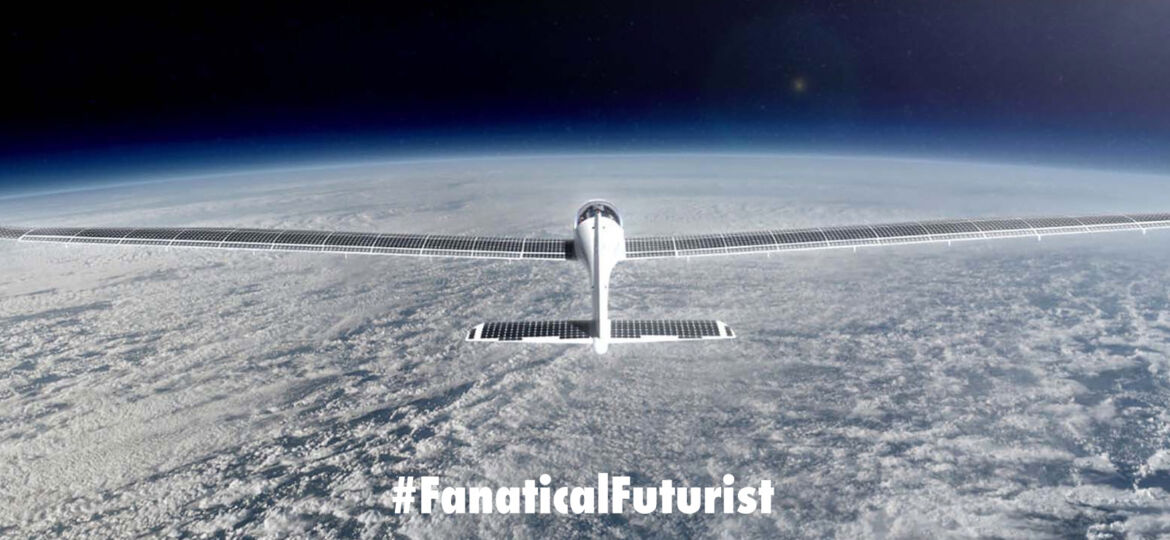
WHY THIS MATTERS IN BRIEF
Tomorrow’s aircraft will be battery powered, but future generations of aircraft could do away with the batteries entirely.
While Elon Musk is invested in getting humans to different places, whether it’s from one side of the planet to the other in rocketships, or to Mars, also in rocketships, at breakneck speeds using unbelievable technologies, there may be one day where we circumvent this Earth of ours without using a single drop of fuel, using planes that are powered by electricity, such as the ones being designed right now by Airbus, Boeing, Rolls Royce, Wright Electric, and Zunum Aero, who want to be the “Tesla of the skies,” and not fossil fuels.
SolarStratos is also a company with the same ambition and they’ve created a manned aerial vehicle with a two person capacity, an incredibly large wingspan, and the ability to completely run on nothing but solar power, so much so that it doesn’t have any fuel on board at all – nothing, not one drop. Oil barons feel free to look away now and cry into your mountains of dwindling cash.
SolarStratos aims for the heavens
The massive wingspan has a twofold purpose. It not only enables the plane to fly without using as much propelling power, but it also comes with solar panels mounted all over it.
The Switzerland based company’s plane has already set records for being the first solar powered airplane to reach heights of 25,000 meters, and made from custom as well as off the shelf parts, the SolarStratos plane comes with an Austrian made 20 kWh battery, solar panels from California based SunPower, and given the heights it reaches, the pilots will be clad in specially designed pressurized spacesuits made by Russian company Zvezda.
SolarStratos’s founder Raphaël Domjan hopes to develop a technology that can battle climate change and champion solar power over high octane fuel. Once the technology is proven to work, the company aims to build a 3 manned vehicle too that will include a pressurised cabin and will operate commercial space tourism flights as soon as 2021.
















